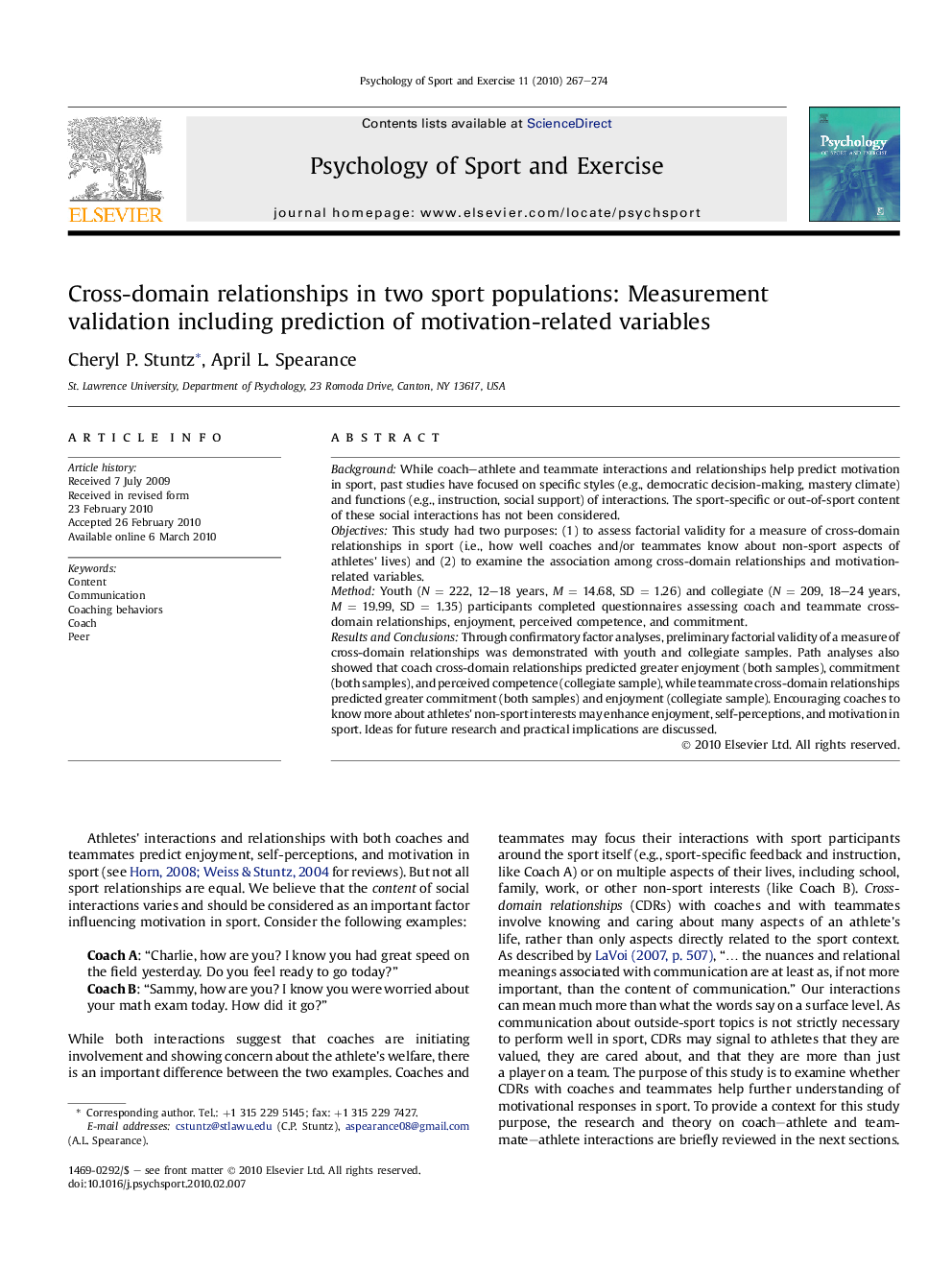| Article ID | Journal | Published Year | Pages | File Type |
|---|---|---|---|---|
| 894710 | Psychology of Sport and Exercise | 2010 | 8 Pages |
BackgroundWhile coach–athlete and teammate interactions and relationships help predict motivation in sport, past studies have focused on specific styles (e.g., democratic decision-making, mastery climate) and functions (e.g., instruction, social support) of interactions. The sport-specific or out-of-sport content of these social interactions has not been considered.ObjectivesThis study had two purposes: (1) to assess factorial validity for a measure of cross-domain relationships in sport (i.e., how well coaches and/or teammates know about non-sport aspects of athletes' lives) and (2) to examine the association among cross-domain relationships and motivation-related variables.MethodYouth (N = 222, 12–18 years, M = 14.68, SD = 1.26) and collegiate (N = 209, 18–24 years, M = 19.99, SD = 1.35) participants completed questionnaires assessing coach and teammate cross-domain relationships, enjoyment, perceived competence, and commitment.Results and ConclusionsThrough confirmatory factor analyses, preliminary factorial validity of a measure of cross-domain relationships was demonstrated with youth and collegiate samples. Path analyses also showed that coach cross-domain relationships predicted greater enjoyment (both samples), commitment (both samples), and perceived competence (collegiate sample), while teammate cross-domain relationships predicted greater commitment (both samples) and enjoyment (collegiate sample). Encouraging coaches to know more about athletes' non-sport interests may enhance enjoyment, self-perceptions, and motivation in sport. Ideas for future research and practical implications are discussed.
